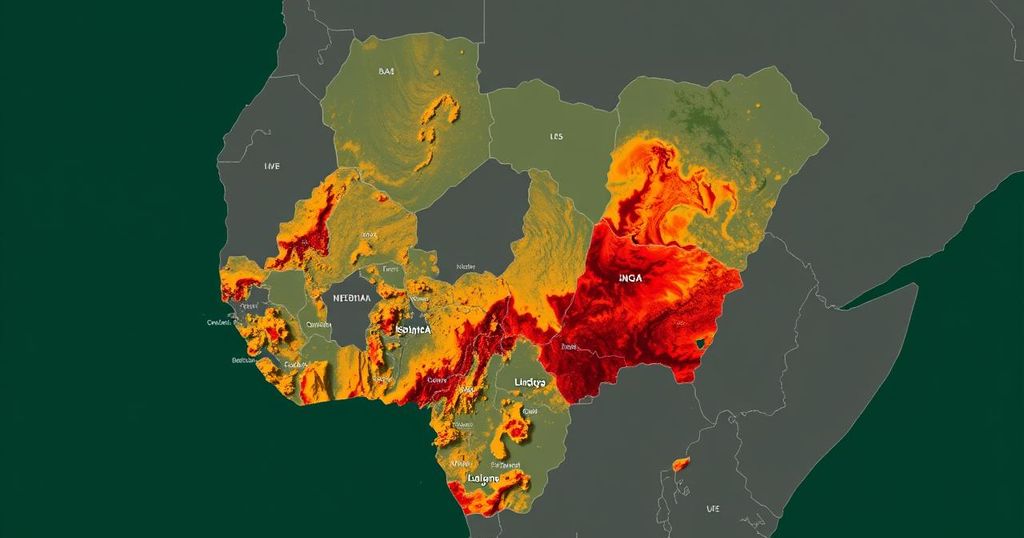Climate change and ongoing conflict in northeastern Nigeria have resulted in a significant increase in severe malnutrition, with a reported 24 percent rise in cases among young children. The ICRC highlights the difficulties families face in obtaining food exacerbated by violence and environmental issues such as flooding and irregular rainfall, with over six million individuals predicted to experience food shortages in the near future.
Climate change, coupled with ongoing armed conflict in northeastern Nigeria, has led to a significant rise in severe malnutrition cases. The International Committee of the Red Cross (ICRC) has noted that this alarming trend illustrates the desperate struggle of families in the Lake Chad region to secure adequate food supplies. Reports indicate a staggering 24 percent increase in the number of young children suffering from malnutrition compared to the prior year. One poignant account is provided by Rabiatu Jubrilla, who shared the condition of her son upon arriving at the ICRC’s Mubi stabilization clinic. “He was healthy when I delivered him, but at 1 year 9 months old, I stopped breastfeeding him. He began to lose weight, and we thought it was because he was not able to get breast milk.” The protracted conflict has been identified as a primary contributor to the deteriorating food crisis, displacing millions and severely disrupting access to agricultural land. Farmer Paul Ezra from Madagali village in Adamawa State noted, “We don’t have enough farmland. Before, we used to go out in the fields to farm. But now, Boko Haram and other armed groups have taken over the bush.” The intensity of the conflict has escalated this year; the ICRC’s Nigeria Head of Delegation, Yann Bonzon, remarked that the rise in individuals facing food insecurity is reflective of an increase in violence, which has considerably hampered communities’ agricultural endeavors and their access to markets. There has been a 58 percent rise in fighting within the Lake Chad region in the first half of 2024. Compounding the crisis, the region’s dependence on subsistence farming renders it particularly susceptible to the repercussions of climate change. Irregular rainfall has negatively impacted food production, and this year, severe flooding has decimated crops, leading to profound consequences. Farmer Abubakar Bello Duhu lamented the dire situation, stating, “We have people who fainted and are at the hospital. Others have died because there is not enough to eat.” The ICRC warns that over six million individuals in the Lake Chad region are poised to confront food shortages in the coming months due to the dual pressures of conflict and climate change.
The situation in northeastern Nigeria is compounded by a combination of chronic conflict and the adverse effects of climate change. The ongoing violence, primarily attributed to groups such as Boko Haram, has resulted in massive displacements and the destruction of local agriculture. With many families reliant on subsistence farming, the impact of climate instability has severely threatened food security, making the population vulnerable to malnutrition. The Lake Chad region, in particular, faces increased challenges, including deteriorating conditions for farming and market access due to the rising tide of violence.
The current crisis in northeastern Nigeria illustrates the severe interplay between climate change and armed conflict, which is significantly exacerbating malnutrition rates among vulnerable populations. With reports indicating a drastic increase in malnutrition among children and rising food insecurity, the situation requires urgent attention and intervention. The challenges of conflict and environmental degradation must be addressed collaboratively to ensure food security and better living conditions for those affected in the Lake Chad region.
Original Source: www.africanews.com







